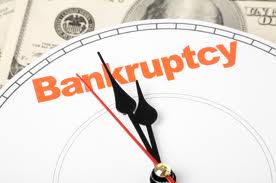 Chapter 7 bankruptcy is for debtors who cannot afford to repay their debt. Cases are initiated by filing a bankruptcy petition. Debtors file a set of schedules that provide a snapshot of the debtor’s current financial situation. Debtors also file statements that provide a financial history of the debtor. A list of assets is filed with the schedules and exemptions are applied to the assets. Exemptions are laws that allow a debtor to protect property from seizure by creditors. If the debtor has any assets that fall outside the categories provided for in the exemptions or have a value higher than what can be protected by the exemptions, then the asset is considered nonexempt. The bankruptcy trustee may seize the nonexempt property, liquidate it, and pay the proceeds to the creditors.
Chapter 7 bankruptcy is for debtors who cannot afford to repay their debt. Cases are initiated by filing a bankruptcy petition. Debtors file a set of schedules that provide a snapshot of the debtor’s current financial situation. Debtors also file statements that provide a financial history of the debtor. A list of assets is filed with the schedules and exemptions are applied to the assets. Exemptions are laws that allow a debtor to protect property from seizure by creditors. If the debtor has any assets that fall outside the categories provided for in the exemptions or have a value higher than what can be protected by the exemptions, then the asset is considered nonexempt. The bankruptcy trustee may seize the nonexempt property, liquidate it, and pay the proceeds to the creditors.
When determining whether or not Chapter 7 bankruptcy is a good decision for a potential client, I usually ask two questions. First, if the debtor doesn’t file bankruptcy can they afford to pay the creditors off within a reasonable amount of time? If my client has primarily credit card debt and cannot afford to make more than minimum payments, then they will not be able to pay off the debt for twenty or more years. To me that is not reasonable. However, if they tell me that they can budget their money and pay off the debt within a few years, then bankruptcy may not be the best option.
Second, I ask them what kinds of property they own. I am trying to determine if they have nonexempt property. If they do then the trustee may seize the property, which increases the cost of filing bankruptcy. If a potential client does have nonexempt property then I try to determine whether it makes sense for the debtor to sell the asset themselves in order to pay off the debt. Typically, a debtor will get more for the sale of property than a trustee will, because the costs of the sale and administrative costs will be deducted from the proceeds of the sale. It may make more sense for the debtor to sell the asset in order to pay off creditors. If there is no nonexempt property or the debts far exceed the value of nonexempt property, then filing Chapter 7 bankruptcy may be a good decision.